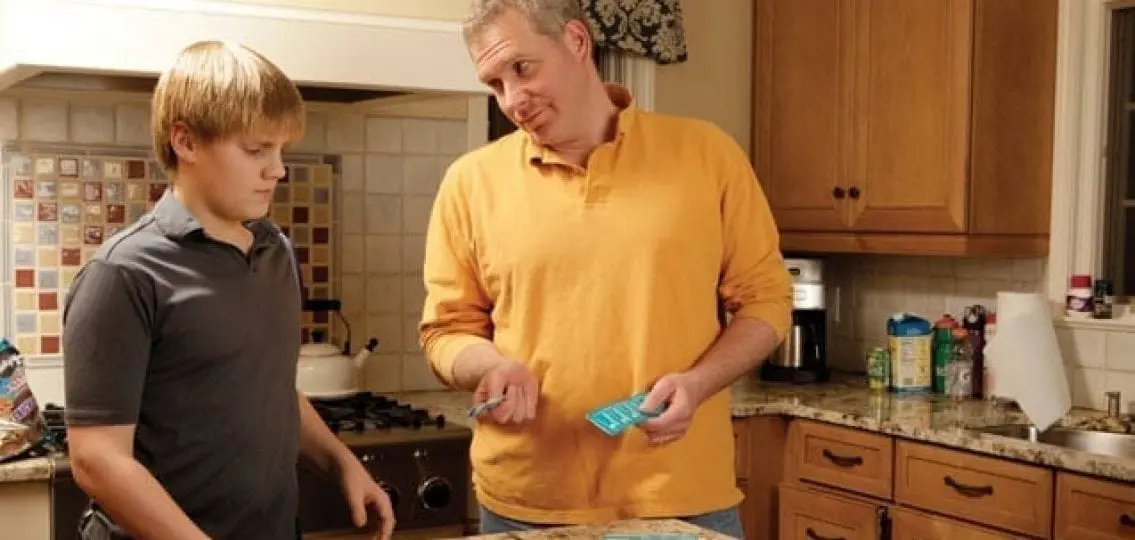Winter break is a great opportunity for parents to check in with their college freshmen. It’s a good time to assess how things are going for them away at school.
The excitement of living away from home for the first time has probably died down a bit. Your teenager now has the freedom to make some important decisions on their own, some potentially health-related. This holiday visit provides a great opportunity for you to talk with your teen, measure how it’s going, and potentially provide support that will help them back at school.
Winter Break Check In
First, set a time to speak with your college freshman privately. Here are 7 ideas about what to discuss.
1. Ask how they are doing.
Is your teenager feeling overwhelmed at college, academically or socially? Determine if your child is feeling isolated or lonely. Have they made friends or attended school-sponsored activities? Remember that most colleges offer support services for students who are having a tough time living away from home.
2. Make sure that your teen knows how to manage healthcare on campus.
Confirm that your teenager is equipped to access health care on campus or nearby in an emergency. Do they have your health insurance information?
3. Help your teen identify an adult he trusts.
Has your child met a responsible adult on campus who could be a sounding board or resource? That could be someone in the dorm, an instructor, a school counselor, or a religious advisor. Having a trustworthy adult nearby who can check up on your teen’s progress and emotional well-being can make a real difference.
4. Revisit the puberty “talk” with your college student.
If you haven’t had “the talk” since your child entered puberty, maybe it’s time to check in and make sure that your son or daughter is informed and aware of how to handle alcohol, drug, and sexual situations that could lead to health problems—physical and emotional.
5. Share your concerns about drugs and alcohol.
Be blunt about drinking and drugs. Most college students, of legal age or not, will partake to some degree.
6. Ask about social pressure.
Does your child know what to do when they are faced with social pressure to “party?” Has that happened yet? A great college experience is about making wise choices. It doesn’t require morphing into a “wild child” who will take risks that could have lifelong consequences. Ask your teenager about any social experience at college that may have challenged them to make a safe choice.
7. Talk about sex.
Make sure your teen understands the potential consequences—physical and emotional—and responsibilities. So how do you talk with an 18-year old about sex? For many parents, it’s even harder than when their child was 10 or 11. Instead of talking about the future, you are suddenly discussing something that could presently be happening in your teenager’s life. That makes the talk all the more important. The best approach is to remember that you are now talking to an adult—more or less. If you want an honest, open discussion, you must respond as you would to an adult, not a child.
Safety Steps Parents Can Take
The balance between independence on the part of the young adult and the protectiveness of the parent is a delicate dance at this age. There are some actions you can consider taking to keep your college student safe.
1. Make connections
Connect with the parents of your child’s roommates. Stay in touch so that everyone is aware of how things are going at school.
2. Know where they are
Keep track of your child’s class and work schedule. Knowing where your teen should be is important. Mobile applications let you check your teenager’s location in real time—if you can get your teen to agree to participate.
3. Be vigilant
Consider becoming a social media stalker. If your teenager won’t Facebook “friend” you or connect on Twitter, maybe their friends will. Paying attention to the social media conversation will help you know if you need to step in to a situation.
So this winter break, before or after the turkey dinner, make sure to secure some time to talk privately with your college student. It may not be easy but it could turn out to be the most important thing a parent does to keep their child safe at school. And you will be thankful you did.




